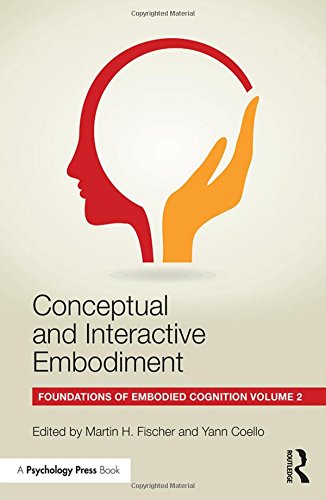

Most ebook files are in PDF format, so you can easily read them using various software such as Foxit Reader or directly on the Google Chrome browser.
Some ebook files are released by publishers in other formats such as .awz, .mobi, .epub, .fb2, etc. You may need to install specific software to read these formats on mobile/PC, such as Calibre.
Please read the tutorial at this link: https://ebookbell.com/faq
We offer FREE conversion to the popular formats you request; however, this may take some time. Therefore, right after payment, please email us, and we will try to provide the service as quickly as possible.
For some exceptional file formats or broken links (if any), please refrain from opening any disputes. Instead, email us first, and we will try to assist within a maximum of 6 hours.
EbookBell Team

4.7
96 reviewsThis two-volume set provides a comprehensive overview of the multidisciplinary field of Embodied Cognition. With contributions from internationally acknowledged researchers from a variety of fields, Foundations of Embodied Cognition reveals how intelligent behaviour emerges from the interplay between brain, body and environment.
Drawing on the most recent theoretical and empirical findings in embodied cognition, Volume 2 Conceptual and Interactive Embodiment is divided into four distinct parts, bringing together a number of influential perspectives and new ideas. Part one introduces the field of embodied language processing, before part two presents recent developments in our understanding of embodied conceptual understanding. The final two parts look at the applied nature of embodied cognition, exploring the embodied nature of social co-ordination as well as the emerging field of artificial embodiment.
Building on the idea that knowledge acquisition, retention and retrieval are intimately interconnected with sensory and motor processes, Foundations of Embodied Cognition is a landmark publication in the field. It will be of great interest to researchers and advanced students from across the cognitive sciences, including those specialising in psychology, neuroscience, intelligent systems and robotics, philosophy, linguistics and anthropology.